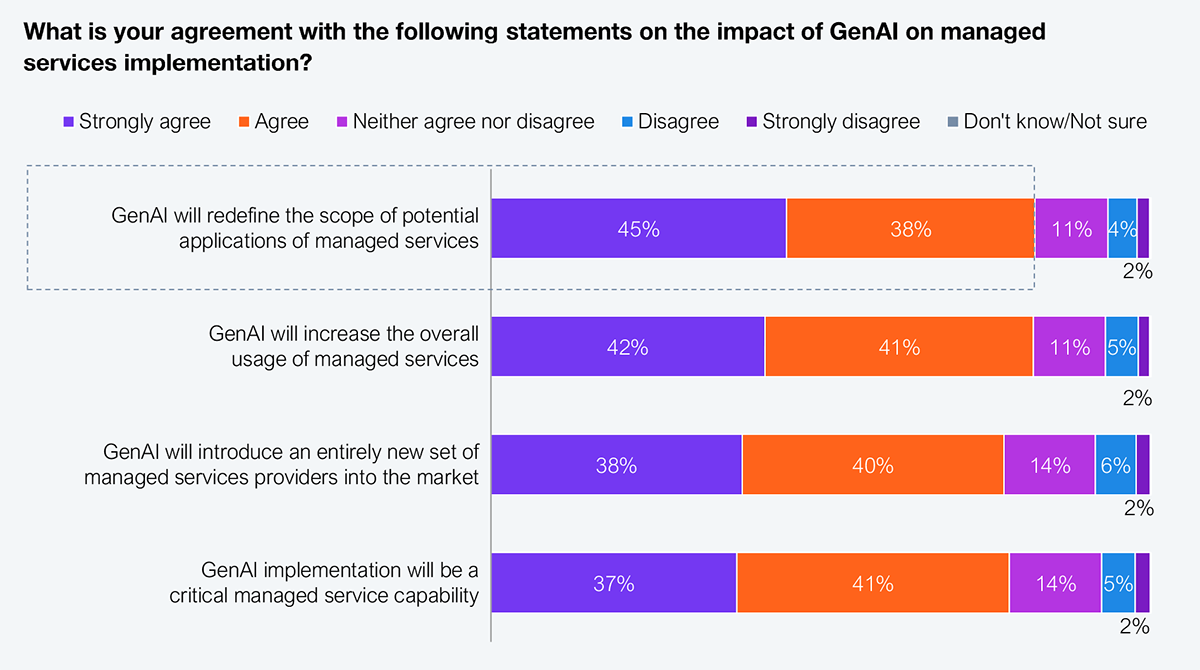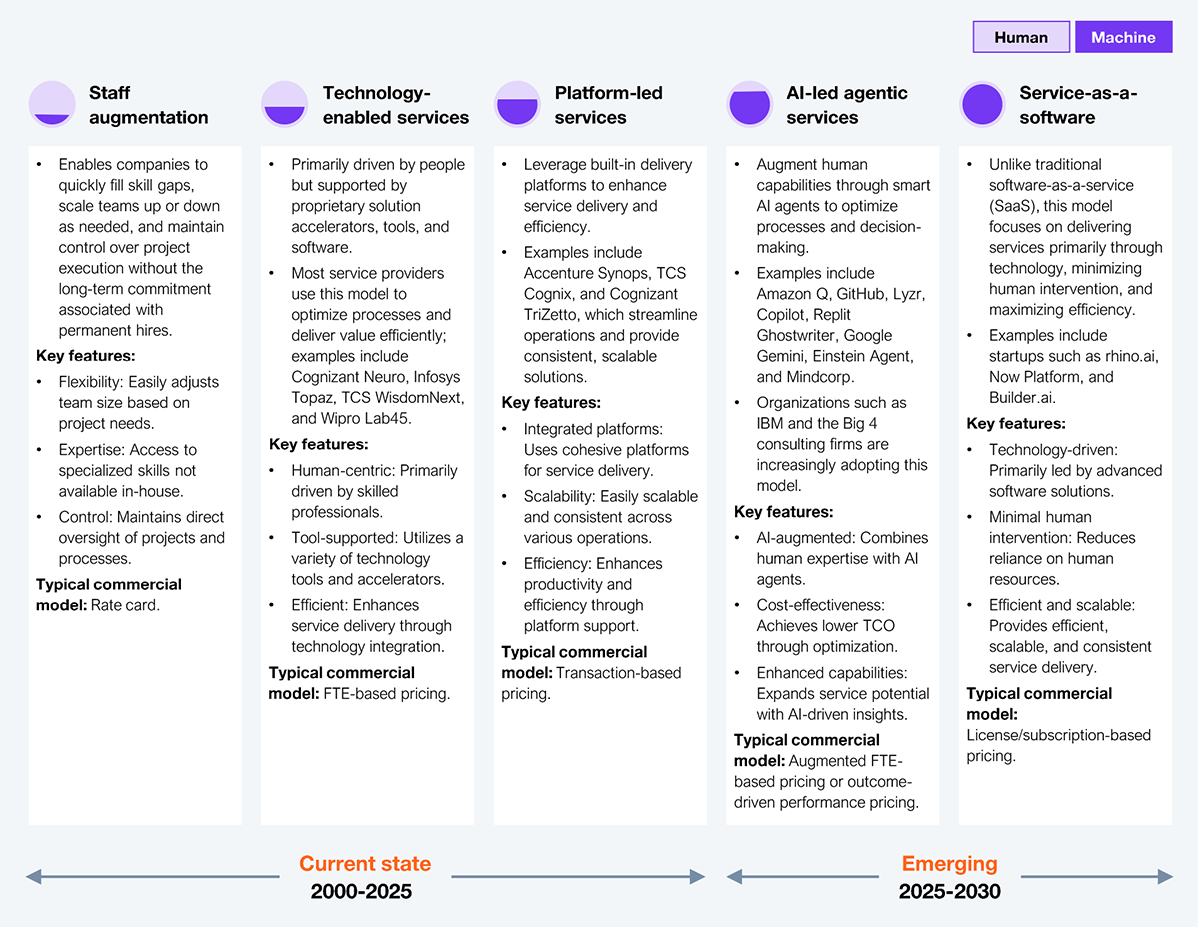For over a decade, technologies such as robotic process automation (RPA) and intelligent document processing (IDP) were applied in BPO to automate repetitive tasks such as invoice processing and claims management but struggled to meet the strategic demands of enterprises. The future lies in AI-driven agentic solutions that enable proactive, tailored interactions through self-learning chatbots, predictive analytics, and automation frameworks.
For enterprises, this indicates a shift to tools that provide agentic solutions powered by AI. These should be equipped to anticipate payment issues, optimize cash flow, and provide real-time insights, enabling better decision-making and operational agility. As BPO shifts from labor arbitrage to technology ecosystems such as GenAI, it’s no longer just about cutting costs—but about delivering scalable, intelligent solutions that help enterprises achieve faster transformation, higher efficiency, and enhanced competitiveness across critical functions such as finance and procurement.

Source: HFS Research, 2024

Source: HFS Research, 2024
The line between software and services is gradually blurring. In line with HFS Research’s 2030 Services Tech Vision, the evolution of BPO services is expected to move toward an autonomous, AI-driven future, where agentic solutions and software platforms replicate and scale work with embedded intelligence. This shift promises a ‘human-lite’ model where routine, repetitive, and decision-heavy tasks are automated, enabling enterprises to redirect resources to value-added activities that require human creativity and strategic thinking.
Business services are expected to shift to fully autonomous models over the years, with AI managing complex decisions and workflows. This transformation will redefine workforce roles and consolidate enterprise software under intelligent, scalable platforms, reshaping how businesses operate and compete.
A medical tech finance leader shared views about working with F&A service providers: “While collaboration has improved, we’d like to see more proactive sharing of best practices from the broader client base. The potential to leverage knowledge across accounts for innovations such as touchless processes could help set services apart.”
The era of ‘one-size-fits-all’ solutions is now in the past. Enterprises are increasingly turning to integrated solutions featuring multiple technologies such as AI, data analytics, and workflow automation to solve specific challenges and unique challenges across industries. These solutions also drive actionable insights and help improve functions such as supply chain management and customer engagement. The outcomes are enhanced personalization, greater operational efficiency, and faster time-to-market, helping enterprises stay competitive and responsive to changing market demands.
For instance, in media and publishing, AI-driven tools are transforming royalty management by accurately calculating complex payments. In insurance, billing systems are becoming smarter, using context-aware AI to identify discrepancies and improve accuracy. Providers are addressing these expectations with end-to-end platform solutions such as TCS Cognix, Accenture SynOps, and EXL’s Digital Finance Suite.
These AI-driven platforms help enterprises optimize operations by embedding data-driven insights. While Cognix and SynOps streamline processes through AI and analytics, EXL’s suite focuses on finance transformation, automating tasks such as cash flow management. These solutions exemplify the shift toward intelligent, platform-based services in business services. As AI evolves, embedding industry intelligence into processes is no longer optional—it’s becoming the new standard for meeting client expectations.
As business services evolve, service providers should revamp their talent strategies to work alongside AI and agentic solutions. With lower-complexity tasks automated, the focus shifts to hiring specialists and SMEs for high-value work, requiring significant upskilling and reskilling to bridge the skills gap left by outdated educational systems. Digital proficiency in AI, data science, and automation as well as domain expertise will be crucial. Service providers can accelerate this goal by developing continuous learning programs, partnering with academic institutions, and rethinking how performance, process improvements, and client relationships are managed in this AI-powered era.
Automation and AI have obliterated the old guard of client-provider commercial constructs. Businesses are no longer about just cutting costs—they demand strategic, tech-driven partnerships that push providers beyond mere service delivery. The increasing work complexity in conjunction with agentic augmentation will definitively reshape BPO services contracts in the next few years. While higher-skilled talent will cost more, agentic solutions will finally swing pricing toward transactions (e.g. price per invoice) on an FTE basis.
The future is outcome-driven, with clients expecting tangible, measurable results. Contracts are expected to be about mutual growth—tied directly to business outcomes, not tasks. However, the movement toward these goals is not yet in full swing—the inertia of both the demand and supply sides won’t last forever.
With innovative collaborations, acquisitions, and a deeper focus on shared goals, service providers must move past efficiency and embrace their role as co-creators in this fast-paced, tech-enabled services revolution.
The business services industry has a 1–2-year window to rethink service models, fully integrate GenAI, and elevate automation to meet growing enterprise demands. At the same time, both providers and enterprises should upskill their employees for new dynamics and align contracts and services with this rapidly evolving reality. Providers should quickly decide what can be automated, help enterprises prepare their workforce, and deliver solutions to meet modern business demands. The clock is ticking—those embracing the transformation will emerge as leaders in this AI-driven landscape, while others risk being left behind.
A leader at a global beverage company remarked, “The pace of transformation in BPO hasn’t yet fully matched expectations. While the consulting teams are driving value, the operational side needs to step up with more advanced automation and truly innovative capabilities to differentiate themselves. The industry must move beyond consistency and focus on delivering transformation at a faster, more impactful pace.”
While some enterprises are already adopting intelligent frameworks to automate tasks, the transition requires significant service model restructuring, new talent strategies, and tackling the complexities of AI integration. Full realization will depend on how well businesses navigate these challenges and how quickly providers adapt to the new AI-driven landscape.
Register now for immediate access of HFS' research, data and forward looking trends.
Get StartedIf you don't have an account, Register here |
Register now for immediate access of HFS' research, data and forward looking trends.
Get Started